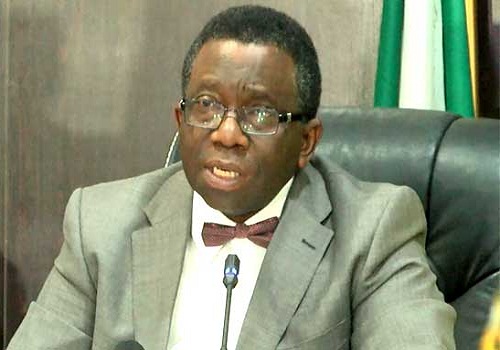
Nigeria’s tobacco control community has honoured the former health minister, Professor Isaac Adewole, director general, Federal Competition and Consumer Protection Commission (FCCPC), Babatunde Irukera, and lawmakers for their role in the passage of the National Tobacco Control (NTC) Act 2015 and its regulation.
The permanent secretary, Federal Ministry of Health, Abdullahi Mashi, was also recognised at the event organised by the Campaign for Tobacco-Free Kids (CTFK), Nigeria Tobacco Control Alliance (NTCA), Environmental Rights Action/Friends of the Earth Nigeria (ERA/FoEN), Nigeria Tobacco Control Research Group (NTCRG), and Gatefield Limited, among others.
In her welcome address, the sub-regional coordinator (West Africa) for CTFK, Hilda Ochefu, said the event was conceived to thank allies for standing by the CTFK and its partners to ensure Nigeria domesticated the World Health Organisation – Framework Convention on Tobacco Control (WHO-FCTC).
According to her, tobacco use still remains the single most preventable cause of deaths worldwide, capping over seven million deaths annually and another 890, 000 people that die from second-hand smoke.
“Although it took Nigeria 10-years to domesticate the WHO-FCTC and another three years to come up with and approve its regulations, the journey is not yet over because immediate implementation which is yet to begin, is key,” she said.
Tobacco alliance honours Adewole, Irukera, others Tobacco alliance honours Adewole, Irukera, others
Giving a brief history of Nigeria’s journey to passage of the NTC Act in 2015 and the approval of the Regulations in June 2019, deputy executive director, ERA/FoEN, Dr. Akinbode Oluwafemi, said the journey started with Nigeria’s ratification of the WHO-FCTC in 2005.
Oluwafemi, who was represented by ERA/FoEN Head of Media and Campaigns, Philip Jakpor, noted that before the NTC Act, the Tobacco Smoking (Control) Decree 20 of 1990 which had provisions prohibiting smoking in certain public places existed but was not enforced.
He noted that with Nigeria’s transition from military to democratic governance in 1999, the decree was converted to an Act titled “Tobacco (Control) Act 1990 CAP, T16.
Jakpor said that the phase that culminated in the current comprehensive law started in 2005 when Nigeria ratified the WHO-FCTC and the processes leading to it, including engaging principal officers of the National Assembly and officials of the Federal Ministry of Health; and former president, Goodluck Jonathan, by signing the National Tobacco Control (NTC) Act in 2015, and thus domesticated the WHO-FCTC.
He explained that some of the provisions of the NTC Act were unenforceable and required Regulations which were finally approved by the eighth National Assembly in June 2019.
In their remarks, the former health minister and Irukera emphasized the dangers of the tobacco menace.
They disclosed that Shisha, that is now being increasingly marketed as less harmful, was in fact the opposite.
While Irukera promised that the battle to regulate tobacco products and marketing would intensify, Adewole said his exiting government would not limit his support for tobacco control causes.




I’m amazed by your ability to transform ordinary topics into engrossing content. Well done!